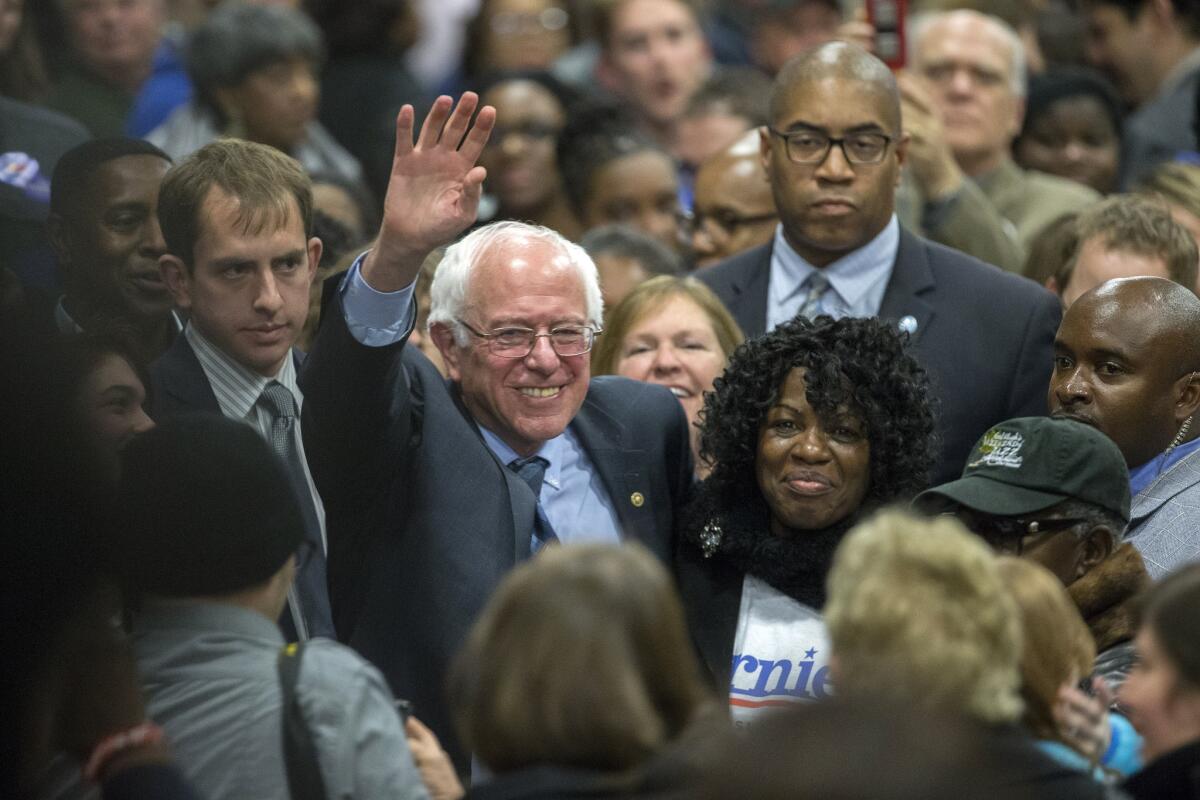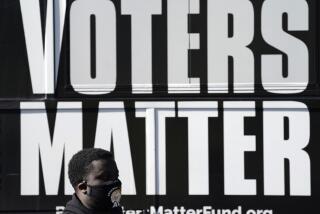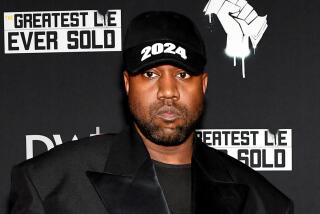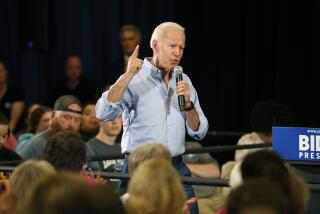To reach minority voters, Clinton talks white privilege. Sanders has another way...

Presidential candidate Bernie Sanders makes his way through a crowd before speaking at an event on Saturday in Charleston, S.C.
Hillary Clinton and Bernie Sanders have a similar agenda when it comes to issues of special concern to black and Latino voters, but take starkly different approaches to winning them over.
Clinton has plunged into a forceful and provocative conversation about race, using language about white privilege and the bigotry that persists in American society, which past candidates have long avoided for fear of alienating white swing voters.
Sanders unapologetically hews to the denunciations of Wall Street and a rigged economy that he relied on to win over mostly white audiences in liberal college towns and campaign rallies in Iowa in New Hampshire. He acknowledges the reality of racism, but mostly describes society’s problems in terms of class and income.
The candidates’ divergent paths, on display as they woo a Democratic electorate in the South Carolina primary that is majority black, reflect the competing priorities of minorities at the ballot box. Hot-button and often deeply personal concerns like immigration and racial justice rank high, but so too does anxiety over an economic recovery that has failed to provide blacks and Latinos the same relief it has whites.
In their first contest in a diverse state, at the Nevada caucuses Saturday, Sanders’ populist pitch showed strength, particularly among younger voters, against the eloquent appeals to identity politics that Clinton has mastered over decades of working with minority communities.
“He has upped his game, and it’s giving the Clinton campaign a run for its money,” said Clarissa Martinez de Castro, a vice president with the National Council of La Raza. “When you are a voter doing everything by the rules that you are supposed to be following, working multiple jobs, but you still are not making headway, a message like his is going to resonate.”
Yet Sanders still lost in Nevada and now finds himself racing the clock. More than a dozen states are scheduled to vote in the next week, leaving him little time to lay the kind of groundwork he did in Nevada, where he spent months enlisting Latino leaders in spreading his message.
And the Vermont senator’s class-centered message appears to be encountering more resistance among African Americans. On Saturday, the primary election in South Carolina will test whether Sanders is making the gains he needs with those voters, who will likely account for half the Democrats who turn out.
A lot of young black activists are judging Hillary Clinton based on her husband’s record, and they are not particularly optimistic.
— Andra Gillespie, professor of political science, Emory University
“South Carolina will be determinative,” said Democratic pollster Cornell Belcher. “We will see whether or not Bernie has the potential to be the Democratic nominee after the results come in. If he shows an ability to at least crack her wall with the black vote there, it is Katie, bar the door.”
It is, though, a very sturdy wall. Some South Carolinians said they had no opinion of Sanders because they still knew too little about him.
Clinton has been working with the black community in this state for years, and voters like 42-year-old Will Rivers have taken notice of her outspokenness of late on race issues. “She’s really grinding with it,” he said of her outreach to black voters, during an interview in North Charleston not far from the site where an unarmed black man, Walter Scott, was shot to death by a white police officer, spurring a national outcry.
Rivers said he was particularly impressed by the concern the former senator and secretary of State has shown about police misconduct. “She was right on the dot,” he said.
Perhaps the most influential black leader in South Carolina, Democratic U.S. Rep. James E. Clyburn, the former House majority whip, wrote in an op-ed piece endorsing Clinton this week that she has “challenged white Americans to interrogate their own privilege and perspectives, in a way that I’ve never heard a public figure do before.”
He was referring to a speech Clinton delivered in New York City’s Harlem neighborhood earlier in the month, in which she called on whites to “talk about the seen and unseen barriers” blacks face and “recognize our privilege and practice humility, rather than assume that our experiences are everyone’s experiences.”
In the same speech, Clinton implied Sanders was the kind of well-meaning white liberal that has long irritated black activists, promising that redistributing the nation’s wealth alone was the key to racial harmony.
“Bernie has the classic liberal problem of wrapping everything up in class,” said Charles Henry, a professor of African American Studies at UC Berkeley. “He’s been called out on it. Solving the class problem doesn’t necessarily solve the race problem.”
Sanders, of course, takes issue with that characterization. While the greediness of the 1% continues to be his dominant campaign theme, the Vermont senator includes in his message many of the same prescriptions for immigration reform and racial justice as Clinton. His campaign produced a gripping video in which Erica Garner, whose father died after being held in a chokehold by New York police, talks about racial injustice and why Sanders is most qualified to confront it.
At campaign events, he labels a national embarrassment the rate at which America imprisons black men — a rate that exploded under the landmark crime bill signed by President Bill Clinton.
“A lot of young black activists are judging Hillary Clinton based on her husband’s record, and they are not particularly optimistic about the kind of criminal justice policy they would see from her,” said Andra Gillespie, a professor of political science at Emory University in Atlanta. “Her talk of being pragmatic also worries them. They want to see change. They want someone who will push the envelope.”
Clinton has worked hard to persuade them she is a change agent, particularly on issues of racial justice. Her call to end “the era of mass incarceration” has taken a prominent place in the Clinton campaign.
But the long relationship with the black community that Clinton has been using to her advantage, has also proved a liability.
Godfrey KHill switched his allegiance to Sanders about a month ago, as he learned more about Clinton’s background on criminal justice issues. He was disturbed to find a video online in which she used the phrase “super predator,” a controversial term employed to justify harsh incarceration policies.
“Politicians are so tricky,” said KHill, a 42-year-old an investigator for a law firm. “And she’s played a lot of tricks.”
And though Clinton argues that the perpetual railing against big banks by Sanders can only do so much to combat systemic problems, KHill sees a big connection. In fact, he said, he is particularly troubled by the immense speaking fees Clinton collected from Goldman Sachs.
“You took money,” he said, “from people who are helping to destroy us.”
Megerian reported from Charleston and Halper from Washington.
Twitter: @evanhalper, @chrismegerian
MORE ON CAMPAIGN 2016
Marco Rubio’s no-win Republican primary strategy can’t last
Republican elite are shifting their thinking on Donald Trump
The prospect of a Trump-Rubio rumble and 3 other things to watch for in the GOP debate
More to Read
Get the L.A. Times Politics newsletter
Deeply reported insights into legislation, politics and policy from Sacramento, Washington and beyond. In your inbox three times per week.
You may occasionally receive promotional content from the Los Angeles Times.








